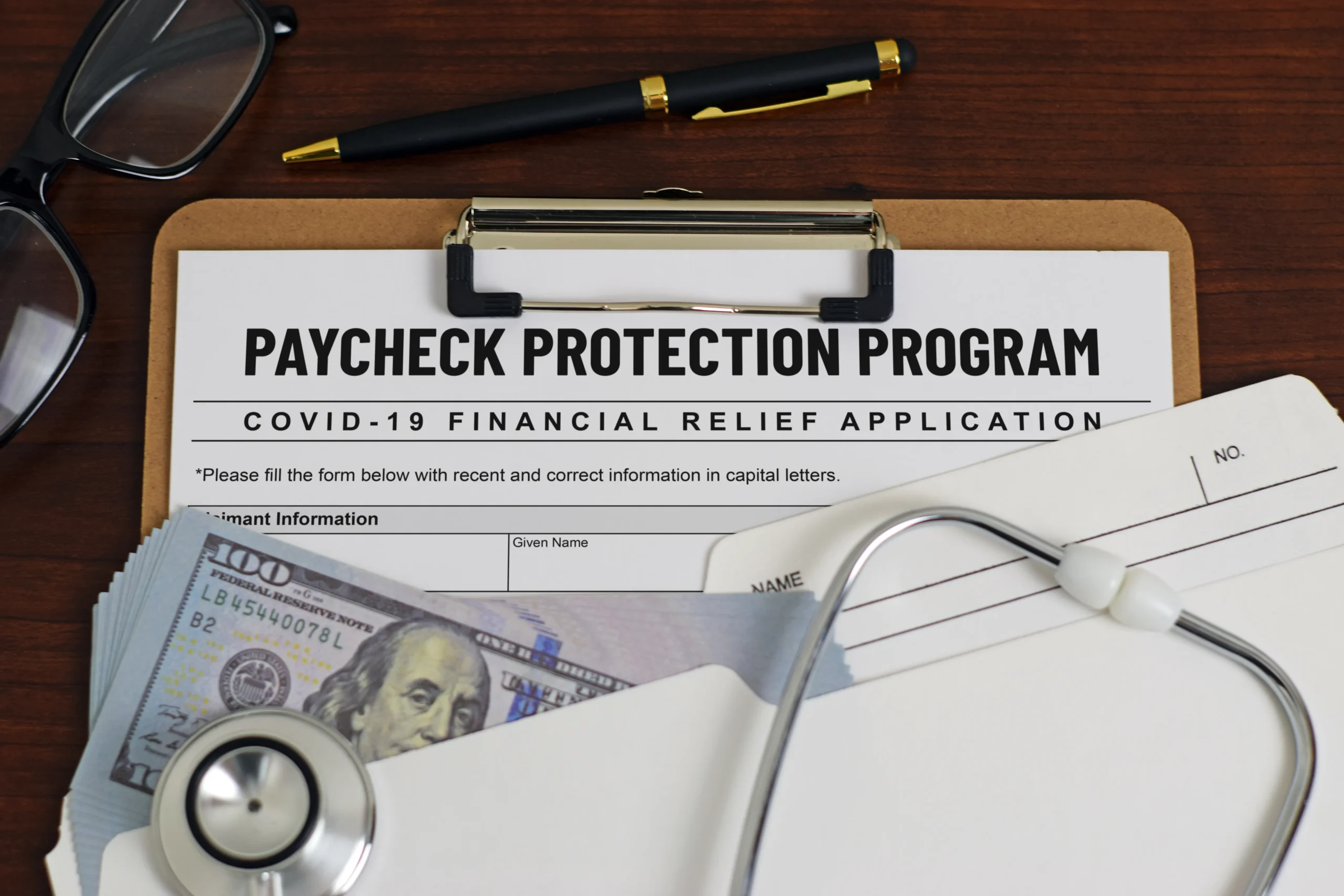Hall of Shame: Thousands Stole from COVID-19 Benefits Programs

It was one of the largest catastrophes affecting businesses and individuals in modern history. During the COVID-19 pandemic, businesses were forced to close, and millions lost jobs. Many went from owning thriving businesses to being broke and unemployed almost overnight.
To save consumers from enduring economic harm, the U.S. government administered various benefit programs to help businesses and individuals survive the financial crunch.
But for a certain brand of fraudster, COVID-19 relief programs represented a lucrative cash grab. Thousands wrongly benefitted from relief programs, and the U.S. government is determined to bring these criminals to justice.
COVID-19 Programs Were Rife with Fraud
So far, multi-agency task forces have recovered about $1.4 billion in stolen funds, according to a new Justice Department report. Prosecutors have charged more than 3,500 with crimes as of April. Some have already been convicted and are serving time in federal prisons. Additionally, there have been more than 400 settlements and judgments in civil cases.
Networks of Scammers
Much of the COVID-19 funds fraud was perpetrated by criminal networks, in addition to individual scammers. Some of these criminal networks operated by stealing the identities of unwitting parties and falsely claiming benefits on their behalf.
One of these identity thieves was California resident Cecilia Aquino, She was ultimately sentenced to over six years in prison after filing false unemployment benefits and Small Business Administration loan requests, according to the U.S. Attorney’s Office, Eastern California District.
Prison Inmates Illegally Accessed COVID-19 Funds
Even people in prison were able to fraudulently access COVID-19 funds, as in the case of Daryl Richmond of California, who was convicted of stealing $1.4 million in COVID-19 funds while incarcerated.
And he wasn’t the only one. Kenneth Hawkins committed a similar crime, using his and the social security numbers of other inmates at a California state prison to falsely file for COVID-19 unemployment benefits.
Government-Employed Fraudsters
It wasn’t only inmates who were defrauding the system—government employees were, too. Prosecutors have indicted 17 employees of the Broward County Sheriff’s Department, accusing them of fraudulent COVID-19 relief funds claims. Deputy Stephanie Smith was convicted in March of wire fraud after applying for two paycheck protection program (PPP) loans. Smith faces sentencing this May.
U.S. Chief Army Warrant Officer Two Dara Buck received a four-year sentence in January in part for scamming PPP and other COVID-19 relief funds, according to a press release by the U.S. Attorney’s Office, Southern District of Georgia. Buck will also have to pay back $3.5 million of COVID-19 relief funds that she stole.
Colleges Had to Pay Back Funds for Poorly Overseen Programs
Educational institutions also fell afoul of governmental task forces due to their poor administering of COVID-19 relief funds. The Department of Education (DoE) reported some of these violations in last year’s Semi-Annual Report to Congress.
Among the schools highlighted by the DoE’s Inspector General was the University of Cincinnati, which it said overstated lost revenue in excess of $800,000, resulting in over-qualifying for COVID-19 relief funds. The IG attributed this to accounting errors, making recommendations for Cincy to “strengthen its processes” to prevent future issues.
What’s Next for the Anti-Fraud Taskforce
In order to keep prosecuting scammers, Congress would have to pass legislation to extend the statute of limitations for COVID-19 relief fund fraud. The Justice Department’s COVID-19 Fraud Enforcement Taskforce is seeking an extension, according to this Fact Sheet published in April.
Discover More Muck
First AI-Powered Lawsuit Exposes California’s Eco-Fraud Empire
Feature John Lynn | Apr 10, 2025

Former Child Soldier General Lied to Get Green Card
Report Strahinja Nikolić | Feb 27, 2025

Weekly Muck
Join the mission and subscribe to our newsletter. In exchange, we promise to fight for justice.
Weekly
Muck
Join the mission and subscribe to our newsletter. In exchange, we promise to fight for justice.





